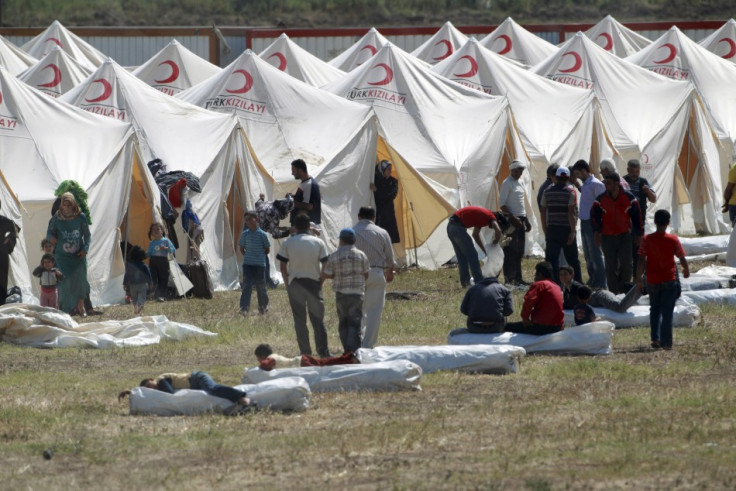Syria: Thirst for Revenge Among Refugees in Turkey, Warns Radical Filmmaker Iara Lee

Iara Lee, the director of the film Cultures of Resistance has just returned from Southern Turkey where Syrians fleeing the conflict have found refuge.
"These people have lost everything. Now they want justice if not revenge." she told IBTimes UK.
"People are in shock but they are also angry. Syrians have grown very sceptical of the Annan plan and the refugees I met feel abandoned," she explains.
Speaking in the aftermath of the Al-Kubeir massacre at the United Nations General Assembly Kofi Annan called for continued support of the plan.
Annan, Arab league Chief Nabil Elaraby, and UN secretary-general Ban Ki-Moon warned that the conflict is about to turn into a full-fledged civil war.
"Anger can be a very dangerous feeling. Assad blames the bloodshed on terrorists, but it is the violence of the conflict that breeds terrorism," Lee explained.
"People who fled the violence are left destitute and the most dangerous are often those who have lost everything. I have met people who told me they were ready to be martyred. Some even said they were ready to make a pact with the devil- Al-Qaida - if it meant the end of the conflict."
While the uprising against Assad started by a series of peaceful demonstrations, within months opposition armed groups were formed, spurred by the victory of armed rebels in Libya.
Though no country officially arms the Syrian rebels, for more than a year they have been able to organise succssful guerilla attacks against the regime's troops. They remain however a small and largely under-equipped force unable to really challenge the security forces
Throughout the months, army defectors and anti-Assad Sunni militants have also been accused of a series of crimes targeting Alawites villagers or of sensationalising certain aspect of the conflict.
"There is a manipulation to try and sensationalise things a bit more in certain cases and people, even from the opposition use tactics to manipulate public opinion. But again there is a lot of violence everywhere."
"The opposition is being armed and the more they get weapons, the more things are going to become problematic. It is unrealistic to think that rebels alone, even armed, could defeat Assad's army."
Despite being oppressed for decades the spirit of dissent against the Assad regime refuses to die down in Syria.
Even if for the outsiders Bashar al-Assad appeared as a reformist and a man much liked by his people, the death of his father Hafez in 2000 engendered a series of pro-reforms protests in 2001. They were swiftly crushed by the regime.
In July 2008, during a riot at Sednaya prison near Damascus, military police killed at least 25 people, according to Syrian rights groups. The government imposed a total blackout on the prison and refused to acknowledge anyone was killed.
It instead blamed terrorists and Islamists prisoners for starting a riot, adding security guards had intervened to restore peace - a narrative that sounds all the more familiar today.
Families of activists and prisoners have for long complained about the security forces bringing back dead bodies of relatives, prisoners, dissidents or activists without providing further explanations.
With no independent media, no non-governmental organisations, and severe restrictions on strikes or demonstrations, maintaining a peaceful movement in Syria has extremely become difficult.
As the regime continues to unleash its brutality, people have nowhere to turn. Even if individuals want to lodge a complaint against security services, they must first obtain permission to do so by the very regime against which they would like to file a case.
In those conditions then, how can one contain people's anger? How can one prevent the conflict from further descending into hatred, blood and violence?
"I am not in support of a military solution, but I do think that we need to push for more diplomatic pressure. Syrians need political support. And in turn we, as an international community need to mobilise and help them have access to food, medicine and medical assistance.
"So much more can be done to help the refugees and provide them with the adequate support. I am conscious that it will be hard to achieve anything through governments as political games and strategies often prevail, but we as a global community can send food, can send medicines or help anyway we can."
© Copyright IBTimes 2025. All rights reserved.





















